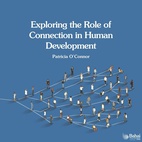The views expressed in our content reflect individual perspectives and do not represent the authoritative views of the Baha'i Faith.
On Father’s Day, everyone has an opportunity, one day each year, to do something special for Dad.
Perhaps the family shares a delicious meal of his favorite dishes, goes out together to enjoy an activity he appreciates, gives gifts to the “World’s Best Dad,” sends cards with funny and touching messages. In all these ways we try to express our love and appreciation for our fathers.
RELATED: Parents: God’s Watchful Eyes for His Children
The father/child relationship is primal, and our recognition of it goes back centuries. In the Catholic Church in Europe, a day to honor fathers has been celebrated since the early 1500s, on the Feast Day of St. Joseph, the earthly father of Jesus. Father’s Day began to be regularly celebrated as a secular holiday in the United States more than 100 years ago, in 1910 – and was actually founded by a woman, Sonora Smart Dodd, who loved and appreciated her father.
Today, Father’s Day is celebrated around the world on various days and in diverse ways. Clearly, as a human race we have some idea of the profound importance of this role and wish to recognize and thank our fathers.
Presumably, we take time during Father’s Day to think about what we’ve received from our fathers. Many, though not all, of us have been blessed to have fathers who have sacrificed greatly for us. Perhaps they have provided for us materially, ensuring we have the physical necessities of life. They may have seen to our education and training by helping put us through school, and perhaps by teaching us many skills directly.
My own father taught me to read when I was five. He had a full-time teaching job and a farm to tend to, so spending one-on-one time with him was a rare treat. I remember sitting next to him and sounding out words from “Little Bear” by Else Holmelund Minarik, which he had put on flashcards. He was patient and encouraging, and I was thrilled by his attention and my accomplishment. I became an avid reader from an early age, and his training set the stage.
Most importantly, our fathers potentially teach us through their own modeled behavior and kind guidance how to be good people. If our fathers stressed virtuous acts of service, prayer, polite behavior, and instilled in us a strong moral sense and a love of God, then we have been blessed indeed, for these will serve us not only in this world but beyond it!
Whether we have children ourselves or not, we are well aware that parents have responsibilities to their children, and the writings of the Baha’i Faith make these primary responsibilities quite clear:
Baha’u’llah, the prophet and founder of the Baha’i Faith, wrote “God hath prescribed unto every father to educate his children, both boys and girls, in the sciences and in morals, and in crafts and professions.”
Abdu’l-Baha, Baha’u’llah’s son and successor, wrote:
The father must always endeavour to educate his son* and to acquaint him with the heavenly teachings. He must give him advice and exhort him at all times, teach him praiseworthy conduct and character, enable him to receive training at school and to be instructed in such arts and sciences as are deemed useful and necessary.
*The word “son” is often used in the translation of Baha’i writings to represent a child of either gender, and, in fact, the education of daughters is considered especially important in the Baha’i teachings.
In addition, the Universal House of Justice has written, fathers have a responsibility to provide financially for their families, especially during those early years when babies are oriented toward the mother who nurses and cares for them first:
… the man has primary responsibility for the financial support of the family, and the woman is the chief and primary educator of the children. This by no means implies that these functions are inflexibly fixed and cannot be changed and adjusted to suit particular family situations, nor does it mean that the place of the woman is confined to the home. Rather, while primary responsibility is assigned, it is anticipated that fathers would play a significant role in the education of the children and women could also be breadwinners.
But despite the existence of Father’s Day to remind us, do we think much about what our responsibilities are to our fathers? In many Western cultures, we seem not to talk about or have a collective sense of those responsibilities.
Many people feel that fathers should provide for their children, and when they are raised, the job is complete and successful if the child becomes independent. No further responsibility to the parents on the part of the children is assumed. We may feel we have responsibility for the material security of our father and mother in their later years, and we may ensure they have what they need to live and take care of themselves as they age. But as grown children, we generally believe our primary responsibility is to ourselves and our own happiness, not to pleasing our parents.
RELATED: Girl Dad: How Fathers Confront Sexism Spiritually
In fact, a persistent trope in the culture maintains that fathers are absent or not worthy of respect, are out of touch, clueless, bumbling, unintelligent, and not to be taken seriously or listened to. In advertisements, movies and shows, popular comedy, and books, fathers are seldom portrayed as wise or honorable, or as providing anything more than a paycheck to the family, if that. In exchange, they are made fun of or ignored.
According to the Baha’i writings, this dismissal is the opposite of the honor and ongoing service due to a loving father. Baha’u’llah wrote:
Say, O My people! Show honour to your parents and pay homage to them. This will cause blessings to descend upon you from the clouds of the bounty of your Lord, the Exalted, the Great.
Verily, We have enjoined on every son to serve his father. Such is the decree which We have set forth in the Book.
What does this mean? How could we serve our fathers? An important step is truly understanding the primacy of this relationship and taking one’s father into account as we live our own lives. Baha’u’llah said this would mean that we live as they have tried to train us, a life of integrity and right living:
Beware lest ye commit that which would sadden the hearts of your fathers and mothers. Follow ye the path of Truth which indeed is a straight path. Should anyone give you a choice between the opportunity to render a service to Me and a service to them, choose ye to serve them, and let such service be a path leading you to Me. This is My exhortation and command unto thee.
Above all, this fatherly relationship should be based on love, a love which recognizes that true fathering goes beyond a blood relationship and is defined by the connection with our fathers of our hearts and souls – or, as Abdu’l-Baha put it:
Be the son of thy father and be the fruit of that tree. Be a son that hath been born of his soul and heart and not only of water and clay. A real son is such one as hath branched from the spiritual part of man. I ask God that thou mayest be at all times confirmed and strengthened.
Abdu’l-Baha also wrote:
The son, on the other hand, must show forth the utmost obedience towards his father, and should conduct himself as a humble and a lowly servant. Day and night he should seek diligently to ensure the comfort and welfare of his loving father and to secure his good-pleasure. He must forgo his own rest and enjoyment and constantly strive to bring gladness to the hearts of his father and mother, that thereby he may attain the good-pleasure of the Almighty and be graciously aided by the hosts of the unseen.
May you and your family have a blessed and meaningful Father’s Day, and may we all learn to honor our fathers.

















Comments
Sign in or create an account
Continue with Googleor